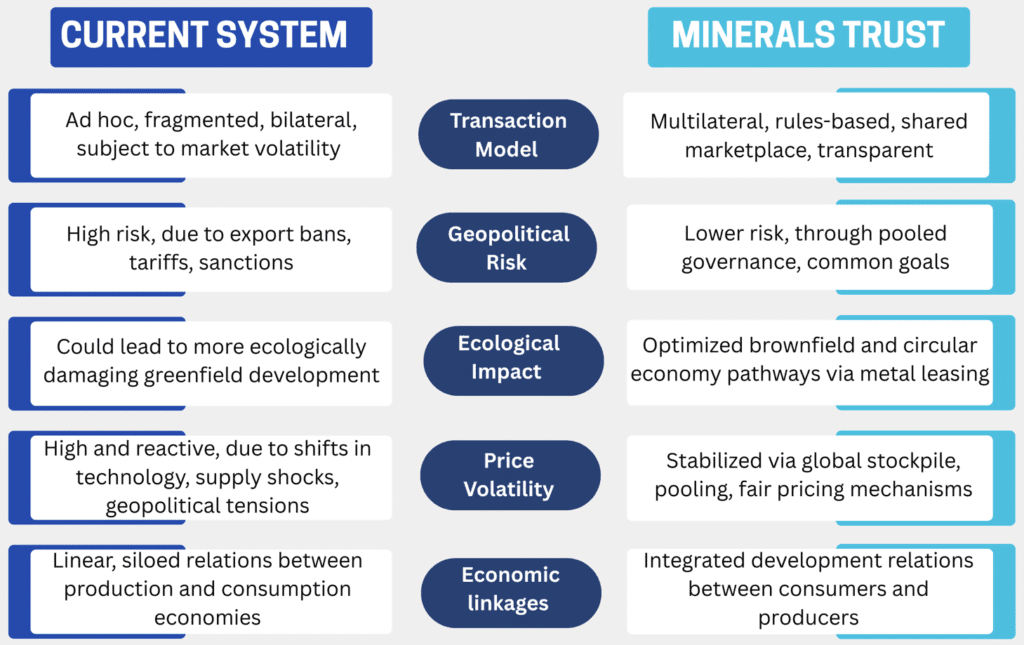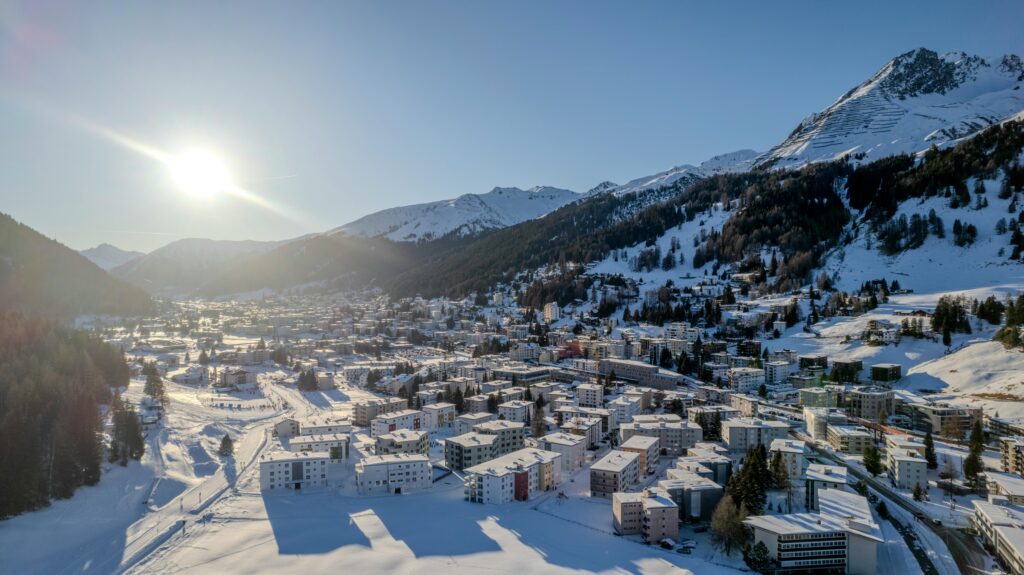A new proposal published this week outlines how a Global Minerals Trust could ensure access to critical minerals at a time when geopolitical tensions are threatening supply. Canada, as G7 President, is urged to lead a multilateral effort before competition escalates into conflict.
Earth4All co-lead and co-author of the proposal Owen Gaffney explains more.
What are critical minerals?
Minerals that are critical for the energy transition (as well as for defence) such as lithium, cobalt, nickel, and rare earths. Rare earths, despite their name, are not so rare but it is rare to find large volumes of these minerals in the same place. And they are difficult to process.
These minerals are essential for electric vehicles, wind turbines and solar cells, as well as fighter jets.
What is the issue?
The main issue is the risk of resource conflict.
Large reserves of critical minerals are found in just a handful of countries. And China has the lion’s share of the processing – when critical minerals are turned into something companies can actually use.
For example, the Democratic Republic of Congo is responsible for 74% of cobalt production and China refines 76% of production globally. Or take copper. Chile produces 23% of the world’s copper and China refines 44% of copper globally. See Our World In Data for key statistics on critical minerals.
Many low-income countries have reserves of critical minerals which are valuable assets to help these countries prosper. But they need significant investment to build skills and technology to mine these minerals sustainably.
Many wealthy countries are racing to secure access. This often involves bullying tactics. The United States wants to make a deal with Ukraine centered around access to critical minerals and it wants to buy Greenland for the same reason. China is using access to critical minerals as a bargaining chip in tariff negotiations.
There are real risks that access to critical minerals could spark major conflicts, that low-income countries will be exploited by wealthier nations and multinational corporations, and that price volatility creates economic crises. All of this might slow the green transition and keep us in the “too little, too late” scenario we want to avoid. Reducing this risk would appear sensible.
You propose a Global Minerals Trust. What is this?
In our Science Policy Forum article we propose an alternative governance model to the geo-capitalist model at play today – a Global Minerals Trust. This is really part of Earth4All’s Giant Leap: critical minerals are essential for the technology needed to achieve wellbeing for all, but access must be fair and sustainable.
Imagine if you are the Democratic Republic of Congo or Chile with large reserves of critical minerals. The Global Minerals Trust would commit to buying a certain percentage of your production of critical minerals, and help you invest in sustainable mining and skills building. There might be an agreement to buy 20% or 100%, it is up to you. This will help protect your resources and derisk foreign investment. Sovereign countries own their own minerals. They can sell their minerals to whoever they like. But if they are part of the trust, then they commit to selling at least part of their resources through this mechanism.
Now imagine you are Europe or the United States and you need a steady supply of critical minerals at a stable price. With the Global Minerals Trust, you can secure a long-term supply at markets rates. The trust would stockpile critical minerals to ensure a steady supply and manage volatility. The trust can also be used as an exchange – minerals could be rented for example to encourage recycling.

How can this be implemented?
We can imagine that at first a few producer and consumer countries club together to create a pilot and then it expands bringing in more countries. The 2025 G7 meeting in Canada is a moment to build support for the proposal. Some of the authors have developed a policy brief through the United Nations University to articulate how this might work.
Is it likely to be implemented?
We want to open the Overton window of political possibility. At the moment, the dominant solution is a purely geo-capitalist governance approach which is a road to potential chaos, conflict and unfairness. We think it is important to propose alternatives to avoid this fate. The Global Minerals Trust needs more work from a broader group of people to flesh out how to operationalise it, and we need more processes to explore other options.

Read the publications
Science Policy Forum: Ali, S.H., Franks, D.M., Puppim de Oliveira, J.A., Madani, K., Gaffney, O., Anggraini, E., Wantchekon, L., & Zeng, X. (2025). Global Minerals Trust could prevent inefficient and inequitable protectionist policies. Science. doi: https://doi.org/10.1126/science.adv9841
UNU-INWEH Policy Brief: Ali S.H., Aczel M.R., Madani K. (2025) Building a Global Minerals Trust for a Just Green Transition, United Nations University Institute for Water, Environment and Health (UNU-INWEH), Richmond Hill, Ontario, Canada. doi: https://doi.org/10.53328//INR25SAL004



